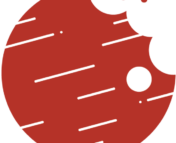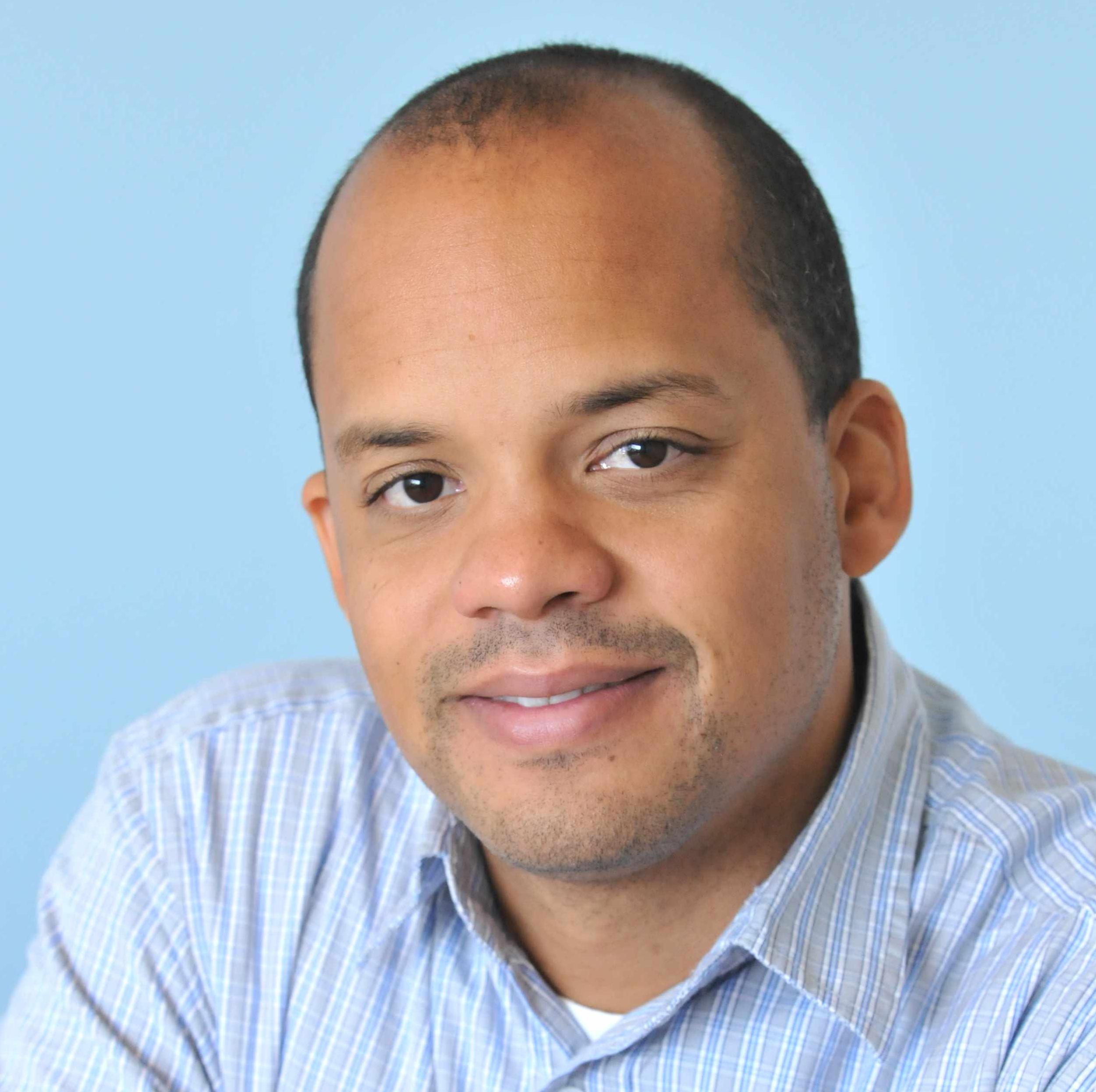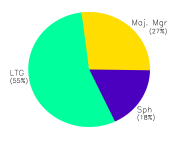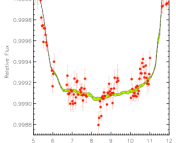Happy anniversary to us! Ten years ago, on November 30th 2010, Astrobites released its first article. Nearly every weekday since then, a new article was published on Astrobites. We have covered over 2,700 research papers from the ArXiv with the goal of summarizing the most recent astronomy research and making it available and accessible to undergrads and the public. In today’s post, we reached out to some of the first-ever authors of Astrobites. We asked them where they are now, why they started Astrobites, and how Astrobites has affected their careers.
Where are you now?
Nathan Sanders [NS]: I’m in Boston, working as a data scientist in industry. In the last few years I’ve been at Legendary Pictures, WarnerMedia, and now Flagship Pioneering
Elisabeth Newton [EN]: I’m an assistant professor of physics and astronomy at Dartmouth College.
Ian Czekala [IC]: I just started in fall of 2020 at Pennsylvania State University, in PA, USA. I’m an assistant professor in the Department of Astronomy and Astrophysics and a Faculty Fellow at The Institute for Computational and Data Sciences.
What did you think your job was going to be when you started Astrobites?
[NS]: I was focused on academic positions in astronomy at that time. This was before I had ever taken a stats class, which ultimately changed my direction profoundly!
[EN]: When we started astrobites, my intention was to be a professor at a research university, which is ultimately where I ended up. However, during grad school and postdoc, I considered a lot of different career paths: academic or academic-adjacent jobs focused on teaching, outreach, or communication, as well as industry jobs (specifically, data science and finance).
[IC]: When I decided to apply to astrophysics graduate schools, I had recently transitioned from focusing on non-academic, aerospace engineering jobs to pursuing a career in scientific research. I was fortunate to have a fantastic undergraduate mentor, Professor Kelsey Johnson, who helped me bridge the gap from engineering to astronomy in an interesting way. So if I recall correctly, in my first year of graduate school I was really focused on what it would take to do astronomy research for a living, since I already had some idea of what it would be like working in industry as an engineer.
How did Astrobites influence your career path?
[NS]: First and foremost, it introduced me to a ton of amazing astronomers who really cared about outreach from our field to the broader public, including future generations of scientists! That led to work with ComSciCon, ScienceBites, and BiteScis that has helped me stay connected to an amazing community of scientists doing work in education and public engagement since then.
[EN]: I think being an astrobites author helped me to be more broadly recognized in the astronomy community, improved my writing and reading skills, and enabled me to meet a lot of cool people who have been friends and mentors. I generally feel that those things helped my academic career.
[IC]: In interesting ways! I think for me, part of grad school was trying to figure out the purpose of grad school and what skills I would need to become a professional astronomer. Sometimes I felt drawn into narrow research sub-specialties, where the goal was to advance knowledge as much as you can in that one direction. Other times I felt a responsibility to become some sort of conversant polymath that’s able to discourse with everyone in the field. These sorts of conflicting messages were frequently bewildering. All these years later, I’m not sure I have the answer, but I suspect that the right mix lies somewhere in between these two extremes. Writing for Astrobites certainly expedited my journey throughout the astrophysical literature and helped me assemble some “core knowledge” outside of my own research projects. It frequently crystalized a reason for me to take a deep dive into that paper that I had been meaning to read.
Why did you start or get involved with Astrobites?
[NS]: My wife (Shannon Morey, Chembites founder) and I had just started graduate school after having science outreach and education be a huge part of our lives as undergraduates, where we helped lead Michigan State University Science Theatre. We were looking for some way to continue that work in grad school. When we thought about our own experience transitioning from Freshman undergraduates to graduate researchers in those years, we thought we could identify a way to help other students on that path by making the literature in our fields more accessible to them.
[EN]: I didn’t give it too much thought, but when Nathan suggested it, I was just like ‘this is something that should exist and sounds like fun!’
[IC]: I think it was before Thanksgiving 2010, when Nathan, who was my officemate, turned around to me and said, “Hey, I’m thinking of starting a blog”. I was like, “What’s it about?” and he said, “I want to make a Reader’s Digest for the arXiv.” I think it was a few weeks later that we all actually decided on the name “Astrobites.”
What was your vision for Astrobites when you started? How does it compare to what Astrobites has become?
[NS]: When we created Astrobites we were pretty narrowly targeted towards the undergraduate audience. I didn’t anticipate how useful it would be to many people outside of the academic astronomy profession, and to more senior researchers in the field.
[EN]: Astrobites is so much more than I ever envisioned; I never expected it to go much beyond a small research blog run by a few graduate students. I was surprised at all turns — by how much traction it got in the first years after we started it, by the enthusiasm for new graduate students who kept it running, by the support of the AAS, and by how thoughtful the current authorship is about diversity and equity.
[IC]: I think Astrobites started as a fun way for us graduate students to get to know the astronomical literature while also hopefully providing the same service for our (anticipated) readers. I think it was just an interesting little experiment that, through the hard work of countless astrobites contributors and supporters, has grown into something incredible today.
Where do you hope Astrobites will go in the future?
[NS]: I hope that Astrobites will expand on its efforts to directly support educators (especially at the undergraduate level, but not only there) to integrate modern research practices and results in their teaching. I think Astrobites could become an integrated part of the infrastructure of undergraduate education.
[EN]: I defer to the current authors! Y’all have been doing great.
[IC]: I hope that it stays strong. I think the high quality material that the authors have been contributing over the past few years, especially regarding diversity and equity, gives every indication that it will.
If you could go back and give yourself advice when you were a grad student/Astrobites author, what would you tell yourself?
[NS]: I would say, take advantage of every opportunity to connect with people! Some of my favorite Astrobites were interviews, guest posts, “day in the life” posts, and other thoughts that we solicited from other students, researchers, software developers, and others beyond our collaboration.
[EN]: Sleep more! You don’t need to do everything all at the same time. (I got way better at this later in grad school, and feel that I usually have a healthy work-life balance now).
[IC]: In graduate school, I felt a lot of uncertainty about what I should be spending my time working on to be productive. The thread that I currently find interesting, or one that more important or more confident people have labeled as interesting, but might not captivate me in the moment? I think in the end I’ve usually found that all astronomy research ends up being pretty interesting, and it’s just a matter of whether I’ve properly taken the time to understand the contextualizing material. So, I would say if your research takes you in a direction that’s interesting to you, relax and trust your instincts—it’s probably interesting to other people too. But recognize that this also requires thinking about and communicating the reasons why you find this topic exciting!
What is your favorite Astrobites post (that you’ve written or that others have written)?
[NS]: I can’t help but give a few!
- First and foremost, Astrobites’ recent Black in Astro series. Even though it came long after my tenure as an author, there’s nothing I’ve been more inspired by that has appeared on Astrobites.
- Ben Nelson’s excellent intro to Bayesian stats – https://astrobites.org/2011/11/26/your-gateway-to-the-bayesian-realm/
- Andrew Pontzen’s remarkable interactive visualizations of inflation – https://astrobites.org/2013/10/24/inflation-it-does-the-opposite-of-what-it-says-on-the-tin/
- (One of mine) on Bill Press and Freeman Dyson’s work on the Prisoner’s Dilemma – https://astrobites.org/2012/10/01/the-prisoners-dilemma-a-new-solution-to-an-age-old-problem/
[EN]: I really appreciated this post: https://astrobites.org/2019/08/16/a-tale-of-two-observatories/ Especially because Dartmouth has a share in the MDM Observatory at Kitt Peak, I felt that this was really important information, and also was something that would have been hard for me to learn and understand without the article. I remember really enjoying writing this article: https://astrobites.org/2011/05/01/the-mystery-of-exoplanet-55-cnc-e/ because of all the excitement surrounding the confirmation of the transit of 55 Cnc e, and because of how different researchers made contributions towards arriving at a better understanding of the Universe.
[IC]: I remember a few by Jamila Pegues that were just awesome. It’s humbling when you click on an astrobite whose topic formed your Ph.D. thesis (in this case, protoplanetary disks), and you end up learning a lot you didn’t know. That speaks to the quality of the writer.
What challenges did you face as one of the Astrobites founders?
[NS]: When I think about our own experience as well as other ScienceBites sites’ from early on, I think there were times when the student founders felt pressure from faculty to refrain from spending time on outreach and education activities. I haven’t felt that pressure nearly so much in recent years. I’d like to think that’s because of a change in the academic culture, but I realize a more likely explanation is the change in my own circumstances!
[EN]: I was worried when we first started astrobites that it would impact my career negatively–either that I’d be viewed as focusing too much on something that wasn’t research, or that I’d get something wrong in a paper I reviewed and someone would be upset. I decided to do it in spite of those worries, but instead, I feel that it ultimately helped my career (noting, however, that I am a white woman).
[IC]: I think a general logistical problem we faced in the early days was figuring out the model of how to grow and sustain Astrobites. How are we going to recruit more people? Fortunately, the growth happened very organically with the authorship spreading by word of mouth to graduate students we knew at other institutions, and from there on.
I did have a bit of trouble making the original Astrobites logo (the Hubble image of Mars with a bite out of it). I actually took a bite out of a piece of paper, traced that, and tried to replicate the path in Inkscape. It’s not my finest artistic work, and it’s funny how it’s cropped up in various ways on the site over the years (including an actual Astrobites cake, which was delicious https://astrobites.org/2011/12/31/concluding-1-year-of-astrobites/). Thankfully there’s a new logo that looks so much better!
Anything else to add?
[EN]: Other fun fact: when I interviewed at Dartmouth, I had lunch with several of the undergraduate students. They told me they’d been excited to have lunch with me because of my involvement with astrobites




